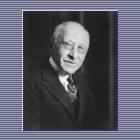|
Sears president Julius Rosenwald established the Julius
Rosenwald Foundation for the “well being of mankind,” in
1917. By 1929 his gifts amounted to $63 million, with
large donations going to the University of Chicago, the Museum
of Science and Industry in Chicago and a variety of Jewish
organizations. Over the course of his life, he donated
millions of dollars to public schools, colleges and
universities, museums, hospitals and clinics, relief agencies,
scientific research, the fine arts, social settlements and other
causes.
Rosenwald took particular interest in the plight of African
Americans. His charity committed large sums of money for
the construction of schools, affectionately known as
“Rosenwald Schools,” in poor, rural and primarily African
American school districts in 15 Southern states. These
schools were cooperatively built with assistance from the local
African American communities. Donations of land and labor
by the local community were matched by financial contributions
from the Rosenwald Foundation. The Foundation contributed
to the construction of over 5, 357 school buildings, nearly 200
teachers’ homes, 163 workshops and five industrial high
schools for African Americans with a combined pupil capacity of
663,615 students.
Rosenwald also supported higher education for African
Americans. He became a trustee of the Tuskegee Institute
in 1912. He gave over two million dollars to Black
University Centers at Tuskegee, Howard, Fisk, Atlanta and
Dillard Universities. The Rosenwald Foundation gave
approximately 1,000 scholarships or fellowships to African
American students.
|


